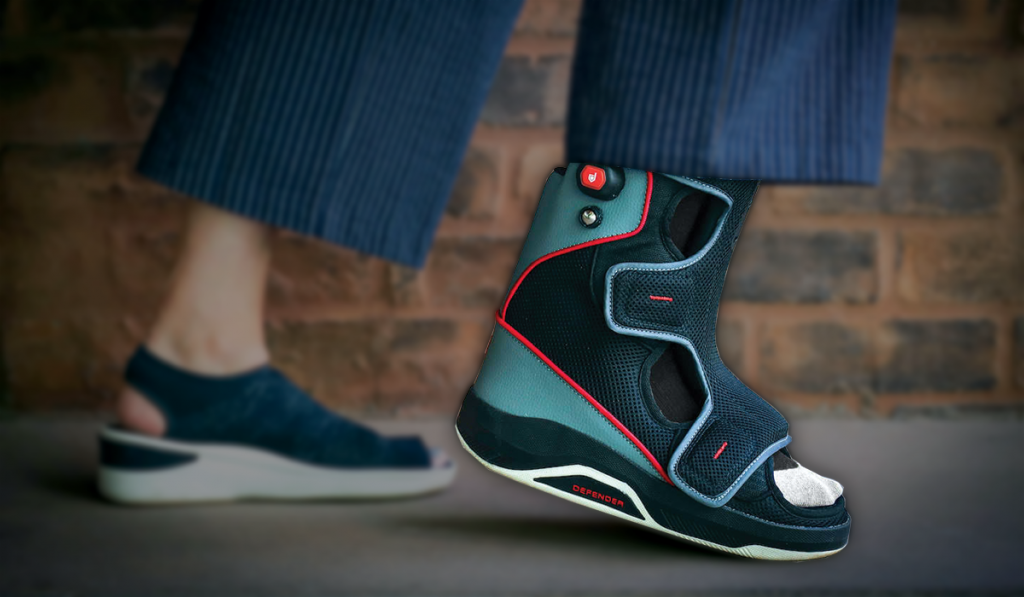
Foot Defender® powered by Sensoria® Smart Boot
Every 20 seconds in the world, there is a lower limb amputation due to diabetic foot complications. Every 1.2 seconds, there is an ulceration. There is no amputation without prior ulceration. After an amputation, patient life expectancy is five years; same as cancer. This is a problem of epidemic proportion that impacts the lives of many patients and their families. Diabetic foot complications cost U.S. taxpayers $17.5B a year — more than any one of the top five most costly cancers.
In my opinion, solutions, like CGM (Continuous Glucose Monitoring), are the precursors of the next generation of intelligent, truly wearable medical devices. Current medical devices are bulky, disconnected, and are often perceived by patients as a stigma that patients don’t want or cannot use in everyday life scenarios. On the other side, consumer wearables are often unable to monitor healthcare data accurately and can’t remotely measure relevant biometrics, adherence, and the activity of elderly (e.g.. gait impairment, recovery from surgery, suffering from diabetes, or neurological conditions). In the United States, 80 million people will be older than 65 years of age in the next few years according to the CDC. Through textile sensors, AI/ML algorithms microelectronics, and remote monitoring cloud software, Sensoria Health extends the reach of clinicians and delivers better outcomes for aging patients.
Thanks to our collaboration with USC Keck School of Medicine, Baylor College of Medicine, and their amazing clinical research teams, Sensoria® Core can now be used in conjunction with our own or third-party footwear. It enables us to deliver customized solutions across multiple health care scenarios.
A new breed of truly wearable, comfortable, and easy-to-use remotely monitored medical devices are finally coming to market. We think of Sensoria as the “INTEL Inside” healthcare wearables and cloud-based remote patient monitoring solutions. We infuse everyday garments, accessories and footwear with sensors and connect them to the patient and his or her clinician. We have delivered the first AI-driven and wearable human augmentation platform that tracks patient adherence, total-body patient movement and activity — remotely and in near real-time.
Sensoria Health has delivered biometric sensor-infused smart garments and a robust Cloud/AI software platform that builds deep and differentiated clinical data assets to enable the delivery of personalized medicine and predictive analytics solutions for smart aging patients and their clinicians remotely and in near real-time.
Through embedded sensors, microelectronics, and cloud software, Sensoria Health makes sense of data and extends the reach of clinicians to deliver better outcomes for aging patients. The application of IoT smart garments and Artificial Intelligence algorithms to healthcare can automate and vastly improve patient care and clinical outcomes while drastically reducing healthcare costs and risk of rehospitalization. Beyond diabetes, as an example, we partnered with Rancho Research Institute on reducing risk of pressure ulceration for wheelchair users.
Even more importantly, Sensoria has created and delivered a product-independent, truly wearable platform that enables multiple smart tele-rehab and kinesiology solutions, including smart socks, insoles, accessories and smart shoes, which have proprietary textile sensors infused into the plantar area of the foot.
Davide Vigano is co-founder and CEO of Sensoria Health, the leading developer of Remote Patient Monitoring and Artificial Intelligence smart garment wearable solutions.
Photo courtesy of Defender
















